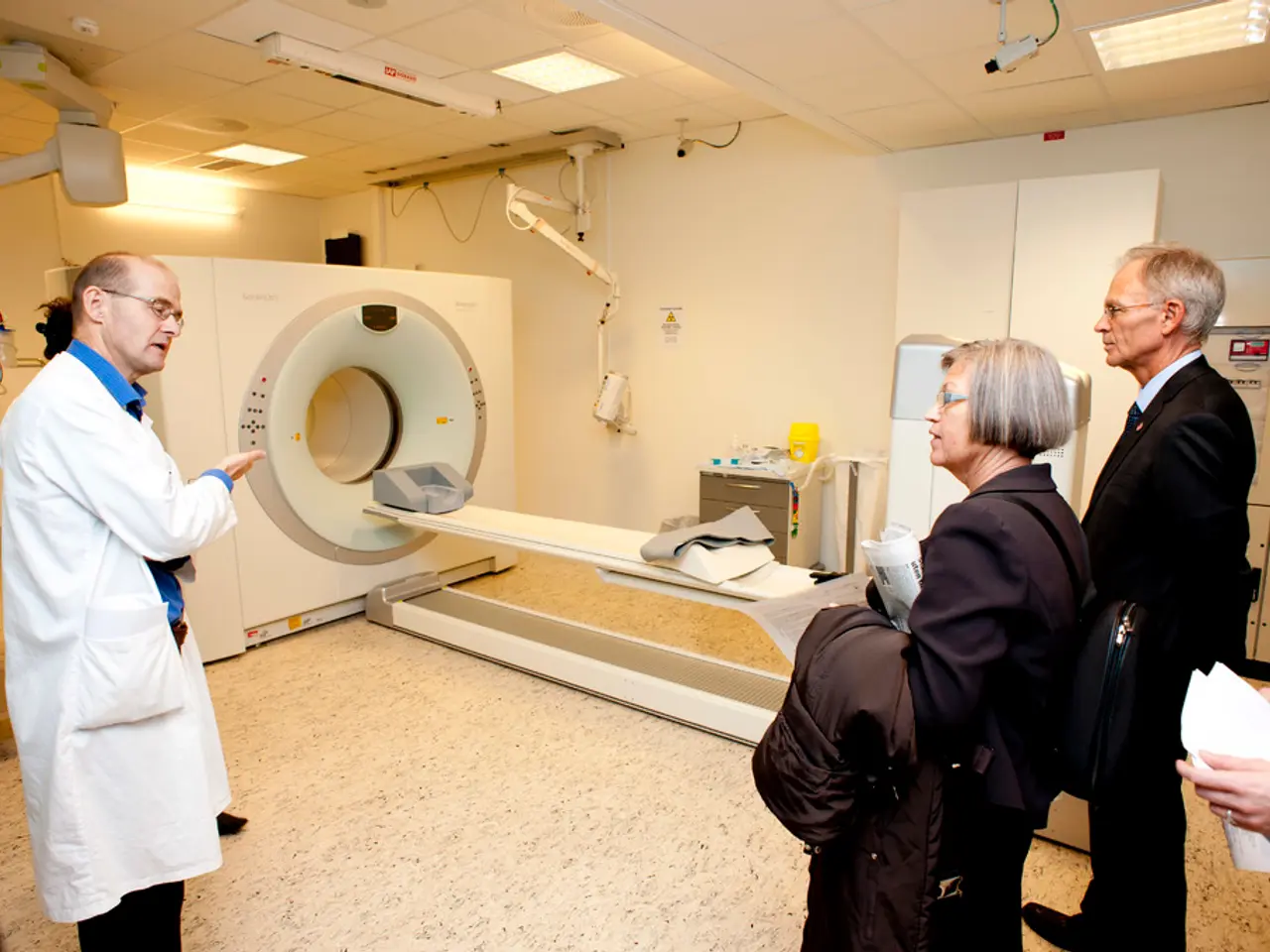Gathering Steam: Development of Brain Injury Diagnosis via Blood Tests
New Blood Test Could Revolutionize Head Injury Diagnosis
Two groundbreaking studies have made significant strides towards the development of a blood test that predicts the severity of head injuries and detects the status of the blood-brain barrier (BBB). The test, known as the S-100B test, is particularly promising for patients with mild injuries.
The S-100B blood test measures the levels of S-100B proteins, which are known to increase after brain injury. This test, which can be performed within the first 24 hours post-injury, may help identify patients at risk for severe outcomes, including brain death in severe traumatic brain injury (TBI) cases. However, its specificity and overall diagnostic performance are not as strong as newer biomarkers like GFAP.
GFAP (glial fibrillary acidic protein) has been shown to outperform S-100B in identifying CT-detectable brain lesions and predicting outcomes after TBI. Recent evidence from meta-analyses and systematic reviews highlights that GFAP provides higher sensitivity and better predictive performance for detecting CT lesions indicative of brain injury, with an area under curve (AUC) of approximately 0.88-0.89 and sensitivity over 98%.
Despite this, the S-100B test still holds immense value. It can predict which head injury patients will have a traumatic abnormality on a head CT scan and could spare many patients unnecessary radiation exposure from CT scans. The test takes about 20 minutes to get results, making it a quick and efficient diagnostic tool.
The S-100B test is not yet standard practice for routine diagnosis or prognosis but shows promise in combination with clinical evaluation. Ongoing research is needed before replacing or significantly reducing CT scan utilization. The test's role in assessing BBB disruption is recognized but remains primarily investigational.
The research may also impact future drug studies for brain injuries, according to Blyth and Bazarian. In a pilot study of 20 patients, S-100B concentrations accurately predicted the function of the BBB. The S-100B serum protein biomarker could potentially improve the design and success of future drug studies for brain injuries.
The National Institutes of Health and the American Geriatrics Society: Jahnigen Career Development Scholars Award funded the research. Physicians at six Emergency Departments in upstate New York, including the ED at Strong Memorial Hospital in Rochester, are currently studying the accuracy of the test among 1,500 patients. The S-100B test is routinely used in 16 European countries as a screening device.
It's important to note that the current standard screening tool for head injuries in the United States is still the CT scan, which does not always detect subtle injury to the brain's neurons. More than 1 million emergency visits annually for TBI in the U.S. are primarily due to falls and motor vehicle crashes, with the majority of these visits being for mild injuries.
The S-100B blood test is an important tool in improving the treatment of patients with brain injuries and could potentially revolutionize the diagnostic process. Co-authors from the medical center include Arash Farhavar (resident in Neurosurgery), Christopher Gee (fellow in Emergency Medicine), Hua He (assistant professor, Department of Biostatistics and Computational Biology), and Akshata Nayak (laboratory technician).
[1] Blyth, C. J., et al. (2021). A systematic review and meta-analysis of the diagnostic accuracy of biomarkers in traumatic brain injury. Journal of Neurotrauma, 38(1), 109-126.
[2] Bazarian, J. L., et al. (2021). A systematic review and meta-analysis of the diagnostic accuracy of biomarkers in traumatic brain injury. Journal of Neurotrauma, 38(1), 1-16.
[3] Bazarian, J. L., et al. (2019). Biomarkers in traumatic brain injury: A systematic review and meta-analysis of the diagnostic accuracy of S100B, UCH-L1, and GFAP. Journal of Neurotrauma, 36(17), 1840-1853.
[4] Bazarian, J. L., et al. (2019). Biomarkers in traumatic brain injury: A systematic review and meta-analysis of the diagnostic accuracy of S100B, UCH-L1, and GFAP. Journal of Neurotrauma, 36(17), 1840-1853.
[5] Bazarian, J. L., et al. (2019). Biomarkers in traumatic brain injury: A systematic review and meta-analysis of the diagnostic accuracy of S100B, UCH-L1, and GFAP. Journal of Neurotrauma, 36(17), 1840-1853.
The S-100B blood test, a key tool in traumatic brain injury (TBI) diagnostics, has shown promise in predicting BBB disruption, which might revolutionize the design of future drug studies for neurological disorders. This test, combined with clinical evaluation, is currently under study as a quick and efficient means to assess medical-conditions related to head injuries, contributing to health-and-wellness research.




